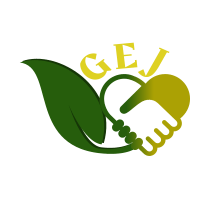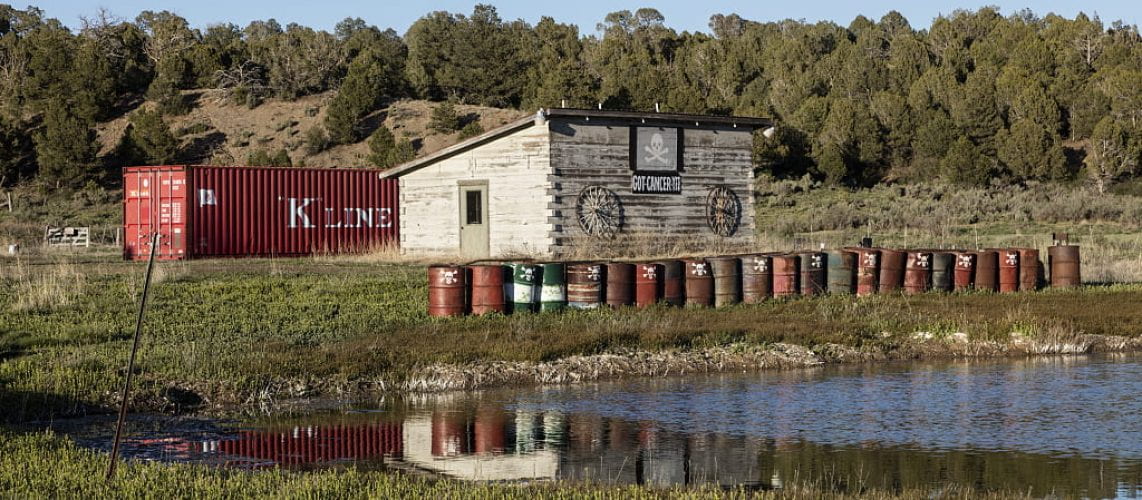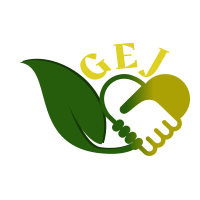Table of Contents
Articles
- Editorial
- Nachowitz, Josh: “Legal Personhood for Mountains and Rivers: A Case Study of Biocultural Rights”
Biocultural Rights, Legal Personhood, New Zealand Maori, Traditional Ecological Knowledge
(PDF) - Zeiger, Alejandra: “Beyond the Duality of Sumak Kawsay: Living Well amongst the Waorani”
Sumak kawsay/buen vivir/good living, Neo-extractivism, Extractive Industry, Environmental Degradation, Waorani, Ecuadorian Amazon
(PDF) - Fisher, Chayla: “Indigenous Vulnerability and Resilience: Assessing the impacts of colonization, globalization, and climate change on the mental health of indigenous people and how to move forward”
Colonial Legacies, Indigenous Marginalization, climate change, mental health, eco-grief
(PDF) - Gonzalez Flores, Marina: “Resistance of Mayan Women against Obstetric Violence” Cultural Rights, Midwives, Women’s Rights , Obstetric Violence, Mexico
(PDF) - Shibata, Riri: “Contemporary Colonialism: Okinawa Experiences of U.S. Military Occupation” Okinawa, Colonialism, US Military Occupation, Food Sovereignty and Identity, Decolonization, Japan
(PDF) - Levin, Laurel: “Raising (Pitch)forks for Climate Justice: Leveraging a Just Transition in Dismantling Big Meat” Climate justice, regenerative agriculture, just transitions, industrial livestock, agriculture policy.
(PDF) - Gonzalez, Cristal: “Bridging Theory and Practice: A Critical Understanding of Sustainability at UCSC” Sustainability, higher education, institutional, positionality
(PDF)
Interview
- Young, Tim: Solidarity Garden Project
About the Authors
Josh Nachowitz: Author of Legal Personhood for Mountains and Rivers: A Case Study of Biocultural Rights
Josh graduated from UCSC in 2019, with a major in environmental studies and a minor in music. His senior thesis explored the recent New Zealand statutes granting legal personhood to two natural features, a remarkable development in the emerging field of biocultural rights. Josh is currently completing a Masters degree in Climate Change Science and Policy at Victoria University of Wellington, New Zealand, and will be working as an intern at the Ministry for the Environment from late 2020. He hopes to continue to work in environmental policy, and is optimistic about the potential for New Zealand to be a global leader in environmental initiatives.
Environmental justice begins with extending the utmost respect to the natural world. The dominant paradigm that humans are not only separate from nature, but superior to it, is a significant barrier to furthering the aims of environmental justice: humans are a part of nature, and when we care for our environment, we have the opportunity to lift the quality of life for everyone. Laws that establish legal personhood for natural features take the first step to challenging the status quo, and bring us closer to a society where everyone can thrive.
Alejandra Zeiger: Author of Beyond the Duality of Sumak Kawsay: Living Well amongst the Waorani
Alejandra works as a research assistant for the Project for Education Research that Scales (PERTS), an applied research center based out of the psychology department at Stanford University. PERTS advances educational equity and excellence through the development of online programs for students based on mindset and motivation. Educational psychology has always been a passion of Alejandra’s, and she is grateful to be able to pursue it full-time.
However, Alejandra is still deeply connected to happenings in Ecuador (her second-home) and within Indigenous Ecuadorian communities. In the fight against COVID-19, she is supporting the NGO Fundación Raíz to raise money to transport much-needed food to vulnerable families, which is allowing them to stay home and flatten the curve. With $20, a family of five can be fed for an entire week. Preserving the health of the elderly is especially important, as they are considered keepers of ancestral cultural heritage.
For more information or if you want to contribute to this cause please visit: https://www.fundacionraizec.org/
Chayla Fisher: Author of Indigenous Vulnerability and Resilience: Assessing the impacts of colonization, globalization, and climate change on the mental health of indigenous people and how to move forward.
Currently, Chayla is still finding their way through post-grad life. They were fired from their full-time job due to the COVID-19 pandemic that has spread across the globe. However, they knew they couldn’t just sit around and do nothing, injustice does not stop for pandemics, in fact, they are exacerbated by them. With that in mind, they got involved with the DigitalNEST of Watsonville and become the lead for their UndocuFund Monterey Bay Project, a community fund for undocumented folks impacted by the COVID-19 pandemic. Like other frontline communities, undocumented immigrants are often left out of federal and state responses to disasters and other environmental issues. Chayla guided their social media campaign across three platforms in order to gain awareness around the issue and raise over $3 million dollars for those in need. They now work on their Public Health Campaign where they are working alongside volunteers to create graphics and a website that provides COVID resources and guidance to our community.
More recently Chayla was asked to be the Social Media Manager for woke., a magazine written by all women of color that focuses on wellness, yoga, social justice, and anti-racism. They promote the magazine as well as create posts that engage our audience in the topics of the magazine in relation to current events. In addition, they have created graphics for an up and coming non-profit, De la Tierra, created by a UCSC grad who was asked to work with the Kofan people of Ecuador and Colombia to regenerate their culture and sovereignty through fundraising. These funds have been used to begin the creation of an ancestral knowledge school, and more recently, to bring isolation kits to elders and other at risk members of the Kofan tribe. Chayla notes that, as we see pandemics and other devastating impacts from climate change continue to rise, we recognize more and more the need to uplift frontline communities by working with them as accomplices to fight for their rights and sovereignty to a clean and healthy earth.
Marina Gonzalez Flores: Author of Resistance of Mayan Women against Obstetric Violence
Marina Gonzalez Flores is an NYC-based feminist, activist, and doula. Marina currently serves as Program Associate for the Global Philanthropy Project, a funders network working to expand global philanthropic support to advance the human rights of LGBTI people globally. Marina graduated from the University of California, Santa Cruz with a bachelor’s degree in Politics and Latin American and Latino Studies and from Columbia University with a master’s degree in Human Rights Studies.
Marina’s dedication and commitment to reproductive health and honoring of ancestral knowledge led her to localize what she learned from Mayan midwives, mothers, and activists in the Yucatan Peninsula and become a doula in New York City. Through Sister Diaspora for Liberation, a women of color collective, Marina volunteers her time to support women of color through birth. Trained by Ancient Song Doula Services, Marina is committed to decolonizing patterns of care and continues to support her New York City community through rebirthing processes and collective liberation.
Riri Shibata: Author of Contemporary Colonialism: Okinawa Experiences of U.S. Military Occupation
As Riri was conducting field research in Okinawa, she learned what environmental justice looks like and what it means to her. Watching Okinawans and Japanese people from her community fight tirelessly, showed her that environmental justice means to abolish and eradicate environmental harms, not to redistribute them. It means to give back the land to the people for their livelihood and wellbeing.
Riri is in Santa Cruz, working as the Undergraduate Program Coordinator at Environmental Studies for UCSC! Though her research has not continued, she still keeps in touch with research participants and others that she met throughout her field study. But most importantly, her current occupation allows her to work closely with passionate students, staff, and faculty who want to see environmental justice in the world; she is very grateful. As the federal appeals court recently (May 2020) ruled to allow construction of another US military base in Okinawa, she thinks this research will continue to relate heavily into current political issues between Asia and the US.
Laurel Levin: Author of Raising (Pitch)forks for Climate Justice: Leveraging a Just Transition in Dismantling Big Meat
Laurel is a climate justice organizer and researcher with a focus on the intersections of agricultural policy, climate change, and social justice. She has a Bachelor’s degree in Environmental Studies and Community Studies, with a concentration in Agroecology and Sustainable Food Systems. During her undergraduate years, she served as the Internal Organizer for the UC Santa Cruz Fossil Free UC divestment campaign. In September 2019, the campaign succeeded with the UC Regents announcement of their nearly 2.6 billion-dollar divestment of the top 200 fossil fuel companies; becoming one of the largest public divestments to date. Since graduating, Laurel now works full time at Oakland based, International Rivers, a human rights and environmental justice organization. Recently, she has also become more involved with the regional climate justice campaign, Sunrise Bay Area. When she’s not organizing or working, Laurel loves leading backpacking trips through the UCSC Recreation Department, and the simple enjoyment of spending time outside with her friends.
Cristal Gonzalez: Author of Bridging Theory and Practice: A Critical Understanding of Sustainability at UCSC
Cristal Gonzalez is a queer indigenous researcher and advocate for environmental justice and racial equity. Their experience growing up in a low-income immigrant family has informed their passion and understanding of the intersections between race, class, gender, and the environment. Their goal is to create meaningful change on a structural level, centering cultural knowledge and the experiences of Black, Indigenous, People of Color for a sustainable and equitable future. Cristal earned their Bachelor of Arts in Environmental Studies & Sociology from UC Santa Cruz in 2018. As an undergraduate, their research sought to explore the ways positionality influenced understandings of sustainability. As a Program/Policy Associate with Clean Water Action, a national environmental advocacy organization, they support stakeholder engagement and policy addressing water access, affordability, and sustainable water projects in California. Cristal is currently engaged in research and advocacy efforts aimed at understanding the impacts of the pandemic on water utility bill debt and shut-offs that disproportionately impact low-income and communities of color across the state.
Editorial Board Members
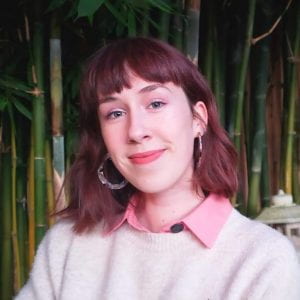
Devyn Rainwater
Devyn (pronouns: she/they) graduated from UCSC in June 2020 with a Bachelor of Arts in Environmental Studies with a concentration in Global Environmental Justice and a minor in History of Art and Visual Culture. She is passionate about social and environmental issues such as building climate resiliency in communities, and equitable disaster management and prevention. She helped to create this journal to share the invaluable work of her peers and break down the structures of academia which often limit open access to necessary knowledge.
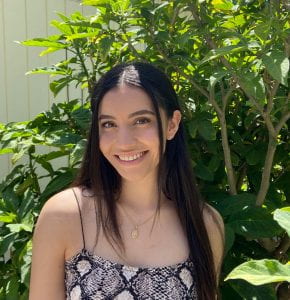
Angela Marquez-Nevarez
Angela (pronouns: she/her/hers) is an undergraduate UCSC student pursuing a Bachelor of Arts in both Politics and Environmental Studies along with a concentration in Global Environmental Justice. She is passionate about environmental policy and believes strongly in the value of educating low-income communities about the ways in which present-day environmental issues affect them the most. Angela worked alongside her fellow editors in creating GEJJ to expand the accessibility of higher education and provide a platform for UCSC alumni and undergrad to share their hard work and knowledge with an extended community.

Caitlin Schilt
Caitlin (pronouns: she/her/hers) is a combined major at UCSC, majoring in Economics/Environmental Studies as well as minoring in Politics. She yearns to unmask intersectional injustices through academica to spread awareness of environmental matters, land rights, indigeneity, and communities most susceptible to climate change. With a passion for environmental policy and educational inclusivity, Caitlin joins the GEJ editorial team. The GEJ team supports advancements in undergraduate research; this special niche of research inspires her as she aims to spread and advance academic inquisition. She is currently involved in research on campus, using the ever-growing digital era to study unprecedented climate change and warming.

Filomena Fuchs
Filomena graduated from the Environmental Studies and Earth Sciences departments at UCSC, with a focus in equitable and sustainable groundwater management systems. She currently works as a solar development consultant in Los Angeles. She is inspired by the activism, research, and community-building done by grassroots organizations throughout California to protect water resources and public health, and intends to pursue further education on social change. She helped launch this journal in an effort to promote conversation around the cross-disciplinary causes and effects of environmental change.
Emma Walton
Emma (pronouns: they/them/theirs) is a Neuroscience graduate completing their master’s in One Health, an ecohealth approach to infectious diseases, at the London School of Hygiene and Tropical Medicine. They want to co-produce open-access scientific research that puts indigeneity, low-income communities, and people of colour at its core in an effort to create worlds outside of capitalism and white supremacy. During a brief period in Santa Cruz, before coronavirus shut the borders, they joined this journal’s editorial board.
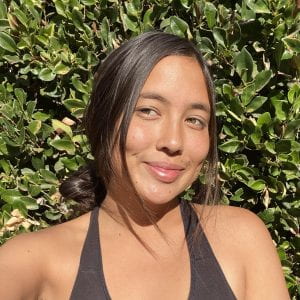
Elizabeth Leece
Elizabeth (pronouns: she/they) graduated from UC Santa Cruz in September 2020 with a Bachelors of Arts in Environmental Studies with a concentration in Global Environmental Justice. During their undergraduate years, they were inspired by the vast environmental intersectionalities displayed within the on-going activism, critical academic research, and solution-building projects within the campus community. They are passionate about environmental policy, specifically regarding natural resources, environmental justice, and international law. Elizabeth collaborated with the editorial board to create opportunities for undergraduate students to publish their research in an open-access platform; furthering inspiration for both students and the public to continue to engage within the expansive and privitol field of environmental justice.
